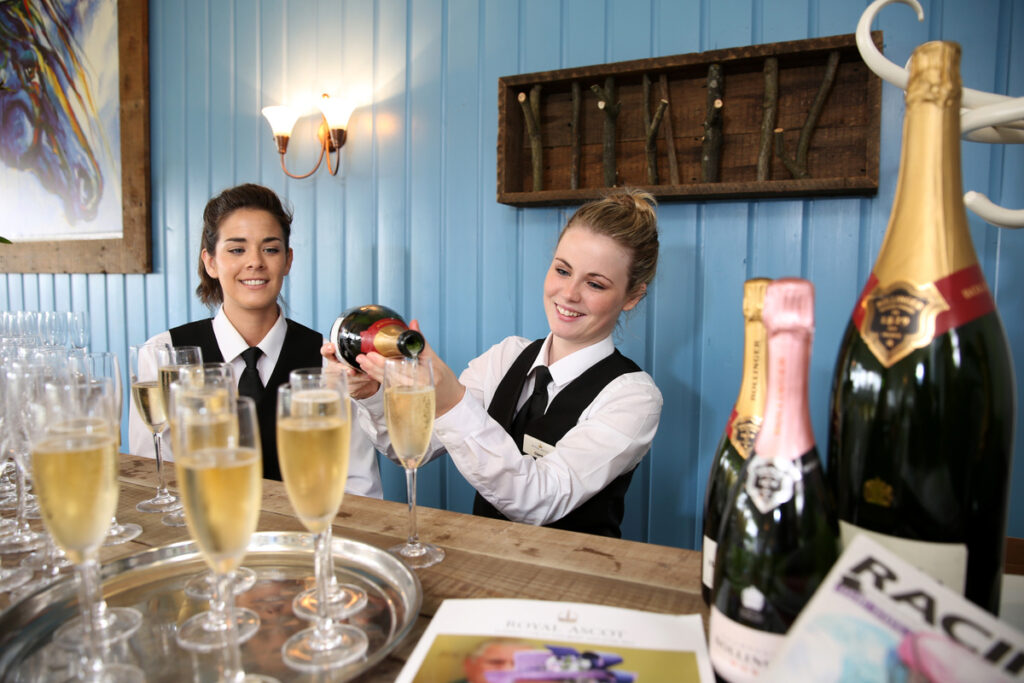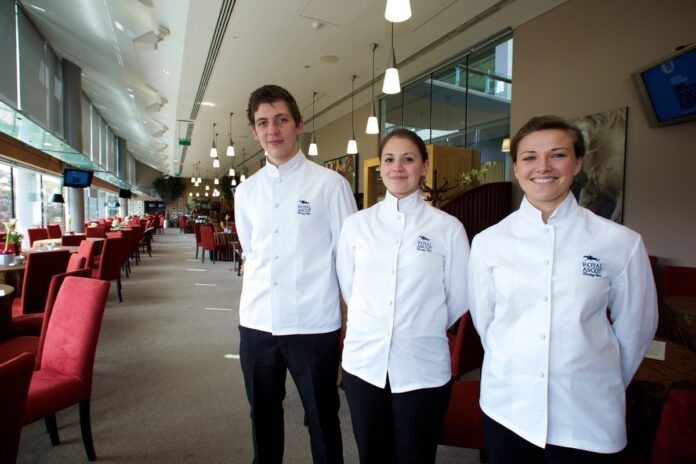Ascot Racecourse is no stranger to hosting an epic annual calendar of grand events. After all, they’ve had plenty of practice given they’ve been holding first class race meetings at the world-famous site for three centuries.
In more recent decades, the site has also become known as a prime location to host a variety of corporate events, from board meetings, private dining and away days to large scale conferences, exhibitions and gala dinners – and everything else in between.
Ascot’s events are only as successful as the trusted staff who support them. A typical race meeting requires 1,000 ad hoc staff who cover a broad spectrum of duties from kitchen porters and tipsters to silver service waiting delivered with impeccable accuracy and timeliness. For Royal Ascot, the crown jewel of the racing season, staffing requirements triple, and more than 3,200 fully trained temporary staff descend upon Ascot for one week to deliver a racing event like no other.
Planning staffing requirements on this scale is no mean feat, especially when considering the vastly differing clientele requirements. On racedays, there are those looking for a relaxed, social day out, to the more serious race goers keen to don their finery and experience an elegant fine dining experience from the privacy of a private box. Then there’s the bespoke requirements of corporate guests who require an agile team to seamlessly deliver a tailored experience to their exacting standards.
To ensure every tiny detail is considered so that every patron experiences a memorable day for all the right reasons, meticulous staff planning starts months in advance. Ascot employs a 15% overbook for each event to cover staff who can’t make it on the day. For large events and racedays, a ‘hit squad’ of 30 support staff manage the check in and check out process and are also trained in several disciplines so that they can be redeployed to areas where they may be short staffed or have a particular challenge.


When recruiting, the number one criteria Ascot looks for is attitude, firmly believing in getting the will of a person right – meaning someone who demonstrates a professional manner and desire to work in hospitality – because the skill can be taught. Even if hospitality is not a person’s long-term career plan, it provides a fantastic opportunity to learn lifelong skills such as gaining the confidence to handle and engage with people from all walks of life.
Ascot works with over 40 different specialist agency partners who they rely on to recruit the lion’s share of support staff. Strong relationships with agencies are essential so that they fully understand the scope of Ascot’s requirements across every business area and provide staff that not only meet the high standards expected from such a prestigious venue but can also hit the ground running.
Once recruited, Ascot trains every individual via a combination of e-learning and onsite training. It’s imperative that everyone understands ‘the Ascot way’ because most will work at other venues and Ascot’s expectations can be quite different from their typical experience.
Event success is a direct result of a happy workforce. Ascot prides itself on its treatment of staff, the primary objective being to provide a nurturing environment in order to build a pool of reliable people who deliver consistently good service. Much consideration is given at every stage of people management, from the recruitment and training process and how they are first welcomed on site, to how they are looked after and supported from a welfare perspective.
Ascot puts significant trust into a team of casual managers whose job is to ensure all staff members’ needs are met through thorough daily briefings, coaching and support. Managers need to be aware and perceptive, for example, if somebody looks uncomfortable or nervous, buddy them up with someone more experienced and give constructive positive feedback throughout the day. Simple touch points such as saying goodbye and thank you at the end of each day make a real difference and are vital to securing a dedicated workforce that is happy and willing to return time and again.
Ascot’s continued success is thanks to the time and resource invested in staff training and support which in turn is helping to draw people back into hospitality and restore faith in this exciting industry. It’s win win.
For more information on Ascot’s range of event options, and to find out more about creating your own bespoke event at Ascot, get in touch with the Events At Ascot team now or call 44 (0)344 346 3611.

Sponsored Content










